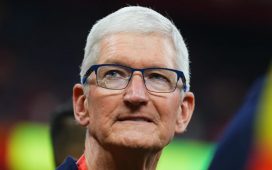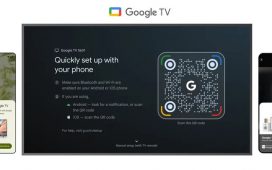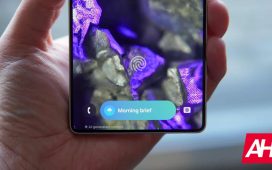May 1 (UPI) — A federal judge ruled Wednesday that Apple knowingly violated an injunction intended to stop what the judge referred to as “anticompetitive conduct.”
Apple was ordered to immediately stop the imposition of commissions on purchases made through iPhone apps, and Apple is also now on the hook to pay the attorney fees for Epic Games over this case.
“Apple’s continued attempts to interfere with competition will not be tolerated,” wrote U.S. District Court for the Northern District of California Judge Yvonne Gonzalez Rogers, who found that Apple intentionally went against a 2021 decision with attempts to interfere with its competition with the creation of “anticompetitive barriers which would, by design and in effect, maintain a valued revenue stream; a revenue stream previously found to be anticompetitive.”
“That it thought this court would tolerate such insubordination was a gross miscalculation,” Judge Rogers said. “As always, the cover-up made it worse. For this court, there is no second bite at the apple.”
The injunction came out of a 2021 case that involved the Epic Games company, whose popular game Fortnite was dropped from the Apple app store in 2020 after Epic filed a lawsuit against Apple, with allegations that Apple acted as a monopoly, and took a 30% cut off all in-app purchases and banned outside payment methods.
Rogers wrote that “Apple knew exactly what it was doing and at every turn chose the most anticompetitive option,” and said Apple Vice President of Finance Alex Roman “outright lied under oath” about when Apple decided to levy a 27% fee on some of the purchases linked to its app store.
“The Court finds that Apple did consider the external costs developers faced when utilizing alternative payment solutions for linked out transactions, which conveniently exceeded the 3% discount Apple ultimately decided to provide by a safe margin,” wrote Rogers.
Roman testified that “up until January 16, 2024, Apple had no idea what fee it would impose on linked-out purchases.”
He said the 27% fee was decided then but before that point didn’t know what it would impose percentagewise on linked purchases.
Rogers had originally ordered Apple to make changes to its App Store that would allow software developers to link to their websites inside of iPhone apps so that customers could make purchases outside of Apple’s environment. He said nearly every Apple decision on its app-linking policies was anticompetitive and held Apple in contempt.
It will now be up to U.S. attorneys to decide whether to investigate or pursue criminal contempt proceedings toward both Roman and Apple.
Rogers also accused Apple of withholding documentation from a June 2023 meeting that included CEO Tim Cook in which there was discussion about how they would comply with the 2021 court order. Rogers said Apple hid the existence of the meeting from the court until 2025, and that Apple abused privilege in order not to share the relevant documents.
Upon having received the documents, Rogers found that there was “a desire to conceal Apple’s real decision-making process, particularly where those decisions involved senior Apple executives.”
“We strongly disagree with the decision. We will comply with the court’s order and we will appeal,” an Apple spokesperson said in a statement.
“No fees on web transactions. Game over for the Apple Tax,” Epic Games founder and CEO Tim Sweeney posted to X Wednesday.
He also wrote in a separate post that Epic “will return Fortnite to the U.S. iOS app store next week.”
“If Apple extends the court’s friction-free, Apple-tax-free framework worldwide, we’ll return Fortnite to the App Store worldwide and drop current and future litigation on the topic,” he said.










